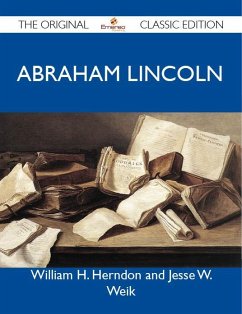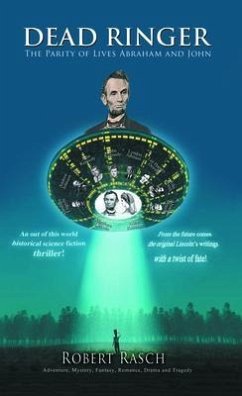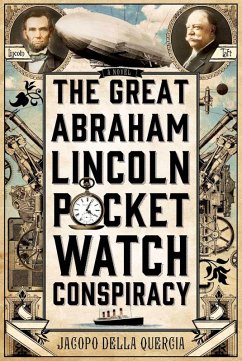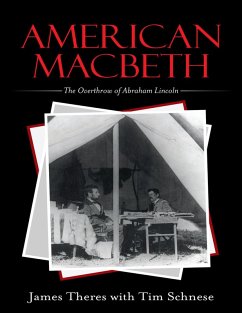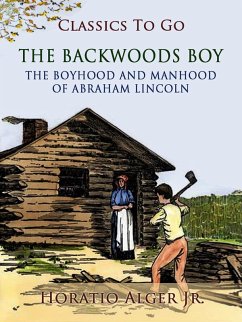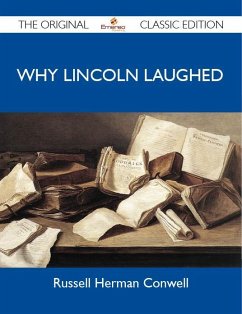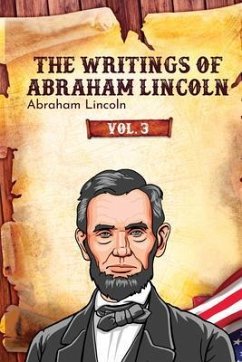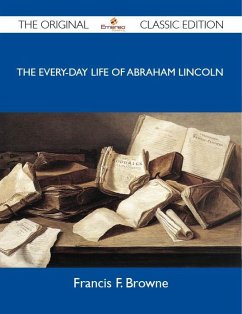
The Every-day Life of Abraham Lincoln - The Original Classic Edition (eBook, ePUB)

PAYBACK Punkte
2 °P sammeln!
In 1863 a delegation came to the White House to complain about President Lincoln?s conduct of the Civil War. The beleaguered president listened patiently and replied: ?Gentlemen, suppose all the property you were worth was in gold, and you had put it in the hands of Blondin to carry across the Niagara River on a rope. Would you shake the cable, or keep shouting out to him? No! You would hold your breath as well as your tongue, and keep your hands off until he was safe over. The government is carrying an immense weight. They are doing the very best they can. Don?t badger them. . . . and we?ll g...
In 1863 a delegation came to the White House to complain about President Lincoln?s conduct of the Civil War. The beleaguered president listened patiently and replied: ?Gentlemen, suppose all the property you were worth was in gold, and you had put it in the hands of Blondin to carry across the Niagara River on a rope. Would you shake the cable, or keep shouting out to him? No! You would hold your breath as well as your tongue, and keep your hands off until he was safe over. The government is carrying an immense weight. They are doing the very best they can. Don?t badger them. . . . and we?ll get you safe across.?
Such stories abound in The Every-Day Life of Abraham Lincoln. Francis Fisher Browne, a prominent Chicago journalist of the day, interviewed Lincoln?s contemporaries to get a candid view of the man before he was enshrined in legend.
This early biography describes how Abe looked, acted, and talked in countless situations. It follows him from his birth in a cabin in Kentucky to his work as a lawyer, legislator, and orator in Illinois, and on to his destiny in Washington, DC. All the great events of Lincoln?s public life?from his debates with Stephen Douglas to the Emancipation Proclamation?unfold in a personal and historical context.
He is seen as a son, husband, father, and friend. Browne gives an authentic sense of the melancholy, humorous man whose love of stories never precluded rigorous thinking and whose oratory led Americans through years of terror and crisis.
Such stories abound in The Every-Day Life of Abraham Lincoln. Francis Fisher Browne, a prominent Chicago journalist of the day, interviewed Lincoln?s contemporaries to get a candid view of the man before he was enshrined in legend.
This early biography describes how Abe looked, acted, and talked in countless situations. It follows him from his birth in a cabin in Kentucky to his work as a lawyer, legislator, and orator in Illinois, and on to his destiny in Washington, DC. All the great events of Lincoln?s public life?from his debates with Stephen Douglas to the Emancipation Proclamation?unfold in a personal and historical context.
He is seen as a son, husband, father, and friend. Browne gives an authentic sense of the melancholy, humorous man whose love of stories never precluded rigorous thinking and whose oratory led Americans through years of terror and crisis.
Dieser Download kann aus rechtlichen Gründen nur mit Rechnungsadresse in A, D ausgeliefert werden.




